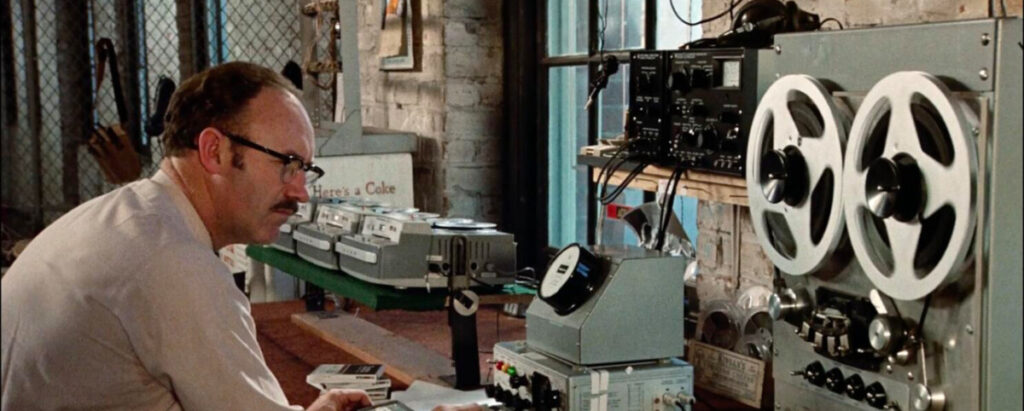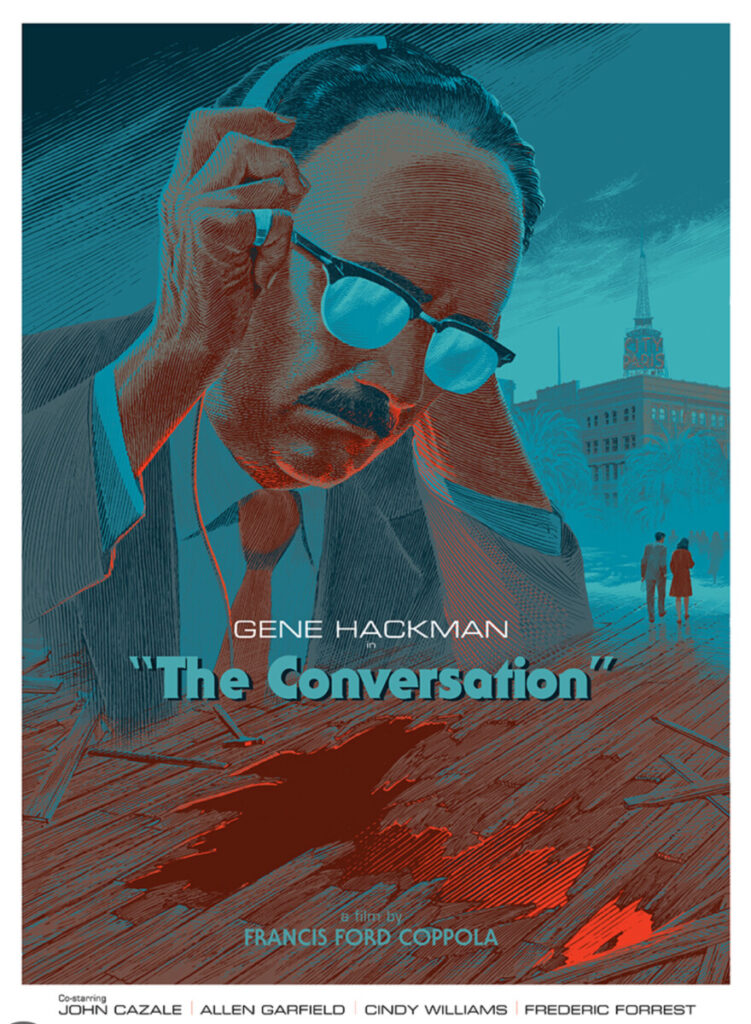Over the weekend, my partner asked me to watch Francis Ford Coppola’s The Conversation, his favorite movie. At first I was hesitant, but now I csn say that this movie is a masterclass in subtle storytelling, and at its core lies a single, devastating twist—one that fully depended on the delivery of a single word. Gene Hackman’s character, Harry Caul, a surveillance expert consumed by his craft, spends the movie unraveling the meaning behind a conversation he recorded. The words “He’d kill us if he got the chance,” seem straightforward enough—until they aren’t.

The genius of the film truly lied in its ambiguity. For me, I knew there was going to be plot twist going on- and even though I kept searching when I was watching the movie of where the plot twist was going to come out of- I never would’ve guessed it, because of just how meticulous and deeply detailed it was. As Harry replays the tape, obsessing over its implications, a shift in emphasis transforms the entire narrative. When the stress in the line changes, so does its meaning—and with it, the stakes for everyone involved. It’s a subtle moment, but it redefines the entire story, mirroring Harry’s growing paranoia and the moral complexity of his work.

Overall, in a world where conversations are perpetually recorded, dissected, and repurposed, and where we constantly make assumptions about the people we only see fragments of, The Conversation feels eerily prescient. The film asks: How much can we truly know from the fragments we observe? And more importantly, what happens when our interpretations are wrong?